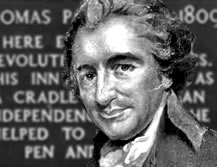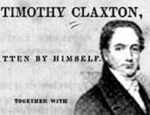Description
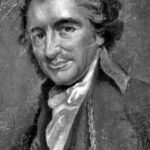 Reassess Tom Paine (1737-1809), one of Britain’s most original radical thinkers, who was far from the kneejerk opponent of the study of antiquity that he is usually depicted. A key player in the American revolutionary war, through the influence of his pamphlet Common Sense (1776), and in the French Revolution, which gave rise to his epoch-making Rights of Man (1791), it was his irreverence towards classical antiquity which scandalized his contemporaries and has ever since been misunderstood by scholars who only read his most famous writings.
Reassess Tom Paine (1737-1809), one of Britain’s most original radical thinkers, who was far from the kneejerk opponent of the study of antiquity that he is usually depicted. A key player in the American revolutionary war, through the influence of his pamphlet Common Sense (1776), and in the French Revolution, which gave rise to his epoch-making Rights of Man (1791), it was his irreverence towards classical antiquity which scandalized his contemporaries and has ever since been misunderstood by scholars who only read his most famous writings.
He did have three well-thought-out objections to the classicism of the ruling class. First, learning ancient languages was a waste of time. True learning, he insisted, ‘does not consist, as the schools now make it consist, in the knowledge of languages, but in the knowledge of things to which language gives names.’ Children who were forced to learn classical languages were left no time to understand the real world around them, especially science. Children in the traditional school, said Paine, had their ‘genius . . . killed by the barren study of a dead language.’ Although he had attended the grammar school in Thetford, Norfolk, he had himself not learned Latin because his Quaker father objected, but still managed to gain an impressive general education by the time he was apprenticed to a corset-maker at the age of just 13.
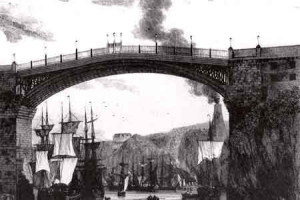 His second objection was that adulation of past epochs prevented his contemporaries from seeing what they had themselves achieved and thinking about how they could do better. ‘I have no notion,’ he affirmed, ‘of yielding the palm of the United States to any Grecians or Romans that were ever born.’ Great progress had been made already, and in pouring praise on ‘the wisdom, civil governments, and sense of honor of the states of Greece and Rome, mankind have lived to very little purpose, if, at this period of the world, they must go two or three thousand years back for lessons and examples. We do great injustice to ourselves by placing them in such a superior line.’ He also thought that excessive respect for the ancient aesthetic sensibility was daft: for Paine, the only thing more beautiful than the Wearmouth iron bridge he had designed was ‘a woman.’
His second objection was that adulation of past epochs prevented his contemporaries from seeing what they had themselves achieved and thinking about how they could do better. ‘I have no notion,’ he affirmed, ‘of yielding the palm of the United States to any Grecians or Romans that were ever born.’ Great progress had been made already, and in pouring praise on ‘the wisdom, civil governments, and sense of honor of the states of Greece and Rome, mankind have lived to very little purpose, if, at this period of the world, they must go two or three thousand years back for lessons and examples. We do great injustice to ourselves by placing them in such a superior line.’ He also thought that excessive respect for the ancient aesthetic sensibility was daft: for Paine, the only thing more beautiful than the Wearmouth iron bridge he had designed was ‘a woman.’
Paine’s third objection was the imposition of the study of dead languages by the leaders of the Christian establishment, to shore up its dogmatic versions of history and the material world and to impede the advancement of physical science. ‘It became necessary to their purpose to cut learning down to a size less dangerous and this they effected by restricting the idea of learning to the dead study of dead language.’ Yet, even here, he recommended that revolutionary new republics would do well to institute ‘a society for enquiring into the ancient state of the world and the state of ancient history, so far as history is connected with systems of religion ancient and modern.’
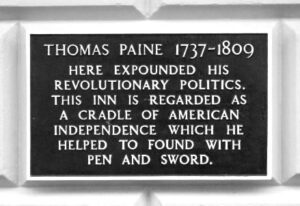 For Paine clearly thought that ancient Greeks and Romans provided useful comparands from which to learn, provided that they were not held up as examples to emulate or invested with any kind of special status or authority. They were just another set of humans, albeit very interesting ones, in another set of socio-economic circumstances. He in fact knows a good deal about ancient history and philosophy, even using pseudonyms such as Aesop, Atlanticus, Comus, Humanus, and Vox Populi. He shared the rest of the Enlightenment’s interest in Plutarch’s heroes, praising some of the actions of Epaminondas, Pericles and Camillus. He commended Solon’s recommendation that ‘the least injury done to the meanest individual was considered as an insult to the whole Constitution.’ And in his passionate rhetoric against colonialism and tyranny, his love of ancient literature sometimes provides him with his most powerful images: what else was the status of colonial America to its British masters than Hector, cruelly tied to ‘the chariot-wheels of Achilles’.
For Paine clearly thought that ancient Greeks and Romans provided useful comparands from which to learn, provided that they were not held up as examples to emulate or invested with any kind of special status or authority. They were just another set of humans, albeit very interesting ones, in another set of socio-economic circumstances. He in fact knows a good deal about ancient history and philosophy, even using pseudonyms such as Aesop, Atlanticus, Comus, Humanus, and Vox Populi. He shared the rest of the Enlightenment’s interest in Plutarch’s heroes, praising some of the actions of Epaminondas, Pericles and Camillus. He commended Solon’s recommendation that ‘the least injury done to the meanest individual was considered as an insult to the whole Constitution.’ And in his passionate rhetoric against colonialism and tyranny, his love of ancient literature sometimes provides him with his most powerful images: what else was the status of colonial America to its British masters than Hector, cruelly tied to ‘the chariot-wheels of Achilles’.
n.b. around 1780

